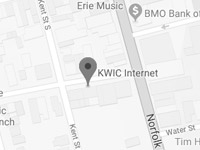Many factors contribute to the success of an organization and its employees. These include the working environment and equipment. One such piece of equipment is the internet, in the form of various devices that work together to connect and safeguard your business. It is necessary to have a network that is appropriate for your company in terms of bandwidth, reliability, and speed, as most jobs require the use of it. To help, here is a guide on how to set up an internet connection for your business.
Assess your Needs
Before you start to research different providers, list all your internet needs. This information will help you shortlist options based on the features and pricing that appeal most to your operations. Consider the size of your business, whether your employees are working remotely, and the devices they will be using (including whether they’re working from their own computers or company-supplied ones). Ask yourself the following questions:
- What software will employees be using?
- How many users will be connected to the network?
- How much wireless coverage will be needed? Will some systems be hardwired?
- What kinds of files will employees be sharing and saving? Are they large or small in size?
- How much speed and bandwidth are required?
Types of Internet
There are several types of internet services available, each with their own appropriate use case and unique feature set.
Satellite Internet
This is a wireless connection that utilizes satellite dishes to provide internet access. This can be an optimal choice if your business is located in a rural area. Please note that this type of network can have lower speeds compared to the ultra-fast inner-city options available nowadays.
Fixed Wireless Internet
Fixed wireless internet will give you a direct link via an access tower nearby. This is ideal for organizations based in a remote area or those that don’t have conventional access points.
Cable Internet
This is a wired option that uses a coaxial cable, similar to the one for TV connections. Cable internet is fast and reliable, plus it frees up your wireless bandwidth for streaming if you plug in an external router and hardwire your computer to the modem.
Fibre Internet
Fibre internet is another wired solution. This type of network relies on fibre-optic cables using light pulses to transfer data between devices. It is a super-fast and reliable type of internet.
Hardware and Software Solutions
Make a checklist of hardware you will require to successfully set up your network. This will ensure your team can send emails or carry out video calls with minimal trouble. Most setups will have the following standard equipment:
Modem
The modem handles the hardwired connection from outside your business. It can then be connected to an external router if you need Wi-Fi. In some cases, modems have built-in routers, but they typically aren’t quite as efficient, especially for business use with many systems sharing the network. A modem is provided by the internet service provider.
Router
A router is what transmits a wireless signal and plugs into your modem, perfect for when you can’t connect every device with an ethernet cable.
Server
A server can be utilized for storage, authentication, and DHCP. Depending on your needs, this may be implemented in an on-premises or cloud-based format.
Firewall
A firewall can sometimes be built into the gateway but independent options are also available. It is designed to prevent spam and viruses.
VPN
A VPN will permit secure access for employees that are traveling or working remotely. You can use a separate tool or a server for this purpose.
Your business likely relies heavily on a stable, speedy, and reliable internet connection in order to operate efficiently. We at KWIC Internet are a provider who can deliver high-speed, reliable internet connectivity at unbeatable prices. Check out the packages we offer, or contact us today for more details.
